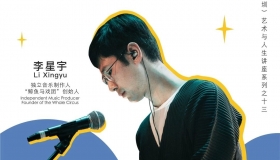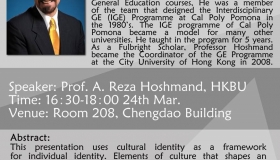【Academic Seminar】Social Learning from Online Reviews with Product Choice
Title:Social Learning from Online Reviews with Product Choice
Speaker: Stefano Vaccari
Venue: Boardroom, Dao Yuan Building
Time and Date: 14:00-15:00, October 18, 2018
Abstract:Product choice when consumers engage in social learning has significant implications on learning outcomes and on the information accumulation rate. In many practical settings, consumers have a choice on which product to buy, if any, among several possible alternatives. The quality of these products may be unknown to consumers, but online platforms provide product reviews so that, as time goes by, customers accumulate information about the products' quality. This paper studies a model where consumers estimate the quality of products from online binary product reviews (like/dislike), and subsequently make a choice among competing alternatives using a multinomial logit model. The consumer learning model is naive, i.e., consumers take the ratio of likes over the total number of reviews as a proxy for quality. We explore the impact of choice on the learning outcome, and show that consumers correctly learn the ranking of the product qualities, but not the actual quality vector. We provide the conditions that allow consumers to get arbitrarily close to the truth and characterize the consistency of their product choices relative to the full information benchmark. Using a large market (fluid model) approximation, we study how choice and product parameters affect learning speed and derive some intuition on the primitives that matter the most. Finally, we address the following platform control problem: assuming that consumers suffer some search cost to go down the list of displayed products, which order of products should the platform use to speed up learning and purchases? Without search costs, the platform has no leverage to accelerate learning, but if search costs exist, and are significant, e.g., most people do not see past the top 10 or so options, then (a) disregarding the search cost leads to significantly optimistic results in terms of information accumulation speed, and (b) by carefully selecting the order in which product options are displayed, the platform may in fact reduce the time-to-learn even when compared to the case where there are no search costs.
Biography: Stefano Vaccari is a PostDoctoral researcher at "LUISS - Guido Carli" University of Rome. He earned his Ph.D. in Mathematical Models for Economics and Finance in the Doctoral School of Economics of "La Sapienza" University of Rome, under the supervision of Marco Scarsini (LUISS) and Costis Maglaras (Columbia University). Broadly, his research interests include revenue management and pricing, with a specific focus on applications to social learning and, more generally, to models of information diffusion via online reviews and related optimization problems.




